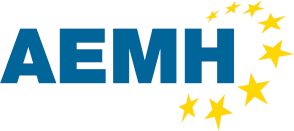EJD endorses AEMH Statement on the Shortage of Doctors and Task Shifting in Europe

EJD endorsed a statement issued by the European Association of Senior Hospital Physicians (AEMH) after its 76th General Assembly that took place in Brussels in May 2023. The statement was presented at the joint EMO President's meeting on July 8th 2023. It reads as follows:
The European Association of Senior Hospital Physicians (AEMH), representing physicians all over Europe, analyzed the shortage of doctors and task shifting in the European context.
Most European countries have a shortage of doctors and therefore experience problems in their respective National Health Care Systems to take care of pa0ents. Reasons for these negative developments are the gap between the numbers of graduates of medical schools and the numbers of physicians needed to replace re0ring doctors and the ever-growing demand of physicians in the National Health Care Systems.
This growth is due to the progress in medicine which leads to the need for more specialists because the new methods demand more subspecialization, also in the context of the enforcement of the European Working Time Directive. The same amount of work needs to be managed by more healthcare workers. This is especially a problem in hospitals where continuous presence of physicians is mandatory 7 days a week and all year round.
The same shortage exists in primary care in all European countries especially in rural areas and regions, which are sparsely populated. Furthermore, the migration (brain drain) of doctors within/to Europe makes the distribution of physicians in Europe even more problematic. Some European countries do not educate enough medical students for their own need and instead fill the gap with foreign young and experienced doctors who are then no longer available in their home countries.
The solution to these problems is the increase of medical education especially in the countries, that are chronically understaffed and rely on foreign graduates to fill the gap. Outsourcing medical education is not a sustainable solution.
Additionally, the working conditions, salaries and incomes in the healthcare sector should be harmonized to reduce purely economic incentives for migration.
The second issue we want to address is the so-called task shifting within medicine. Task shifting is an approach that has been used in many European countries to address the shortage of physicians and other healthcare professionals. Task shifting involves transferring tasks from physicians to other healthcare workers, such as nurses, midwives, or pharmacists, who have received additional training and have expanded roles and responsibilities.
This is a problematic solution to these shortages, as it raises questions concerning pa0ent safety and legal responsibilities. It is evident that the core tasks of physicians cannot be substituted. When such tasks are part of the core competence of doctors, physician supervision should be secured to ensure safety. Delegation is a feasible way to expand medical treatment to the growing demands of pa0ents. Substitution means in this context the shifting of tasks to others without the supervision of a physician.
To summarize, delegation is necessary and responsible while substitution should be avoided to safeguard medical treatment and to avoid harm and legal problems. When a country allows task shifting (substitution), the medical profession should no longer responsible for treatments and the responsibility shifts also to the new providers.
Task shifting must be guided by pa0ent benefit and the needs of the medical ac0vi0es. Improved quality must be the driving force and not economics or staffing shortages. It must also not interfere with doctors’ opportunities to continuous training.
Last but not least, everybody working in the European Health Care Systems is a victim of bureaucracy which takes up to 50 percent of the working time, valuable time that is lacking for patient care.
When all mentioned problems are addressed adequately, patients and health care professionals will profit together.
Associated Files
You might also enjoy
-

Protecting the Mental Health of Europe’s Health Workforce
MeND Survey Report
-

European and Latin American Physicians Declaration on the Protection of Life and Health in Gaza
As physicians speaking on behalf of leading professional institutions and associations across Europe and Latin America, we denounce the grave suffering endured by the civilian population of Gaza.
-

European Junior Doctors condemns attacks on healthcare and the obstruction of humanitarian aid in Gaza amid unfolding famine
European leaders must uphold international humanitarian law, protect civilians and healthcare workers, and take immediate action to stop the devastation
